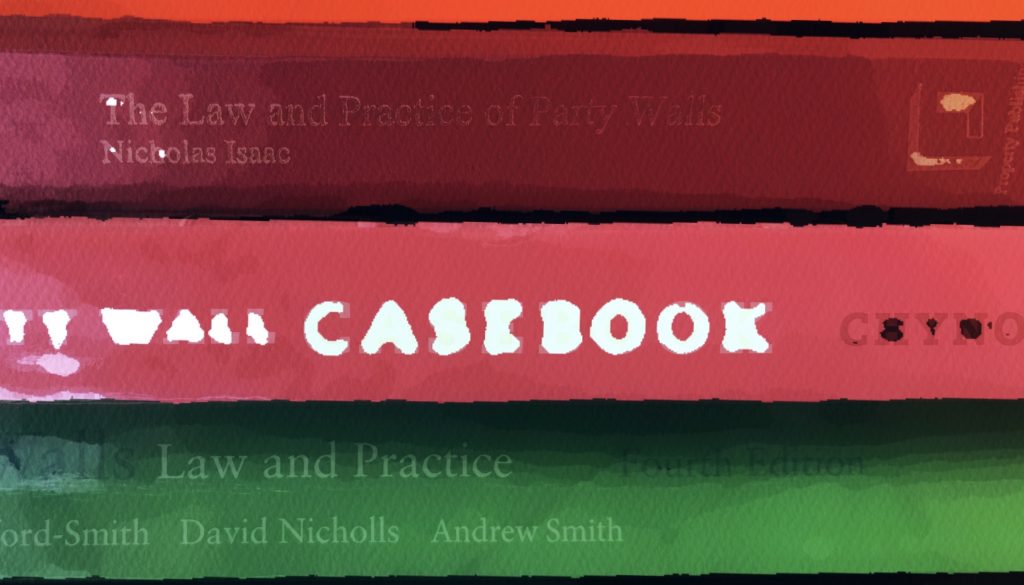Summary:
The Court held, in effect, that it was impossible to contract out of the Act for all purposes except for an appeal under section 10(17). Unless an award is made under section 10 of the Act, no appeal under section 10(17) can lie against it.
Facts:
After a substantive award made in August 2015 authorising a basement excavation, the parties became involved in various party wall disputes and by May 2016 there were four separate sets of proceedings in train between them. All of these proceedings were settled by a consent order in the form of a Tomlin order (“the Tomlin Order”) which, amongst other things, provided that a dispute as to compensation for damage caused to the Takhars’ property by the Mohameds’ works should be determined in writing by an independent expert (“the Expert”), with the parties having a right to appeal “which for all purposes shall be treated as an appeal under section 10(17) of the Act”.
Subsequently there were injunction proceedings brought by the Mohameds against Messrs Antino and Stevens – respectively the Takhars’ party wall surveyor and the third surveyor – in which, in obtaining an injunction preventing those surveyors from making any further awards, the Mohameds successfully argued that the effect of the Tomlin Order was to contract out of the Act, thus rendering the surveyors redundant.
On 13 October 2020 the Expert, Mr Walker, made an award of compensation in favour of the Takhars in the sum of around £500,000 (“the Award”). The Mohameds issued a notice of appeal against the Award. The Takhars initially participated in the appeal, serving a response to the grounds of appeal and arguing that the appeal should proceed by way of review rather than rehearing. However, they subsequently issued an application to strike out the appeal on the grounds that the Court did not have jurisdiction to hear the appeal under the Act.
The Takhars argued that the Court did not have jurisdiction under section 10(17) except where the Award being appealed was an award made under section 10 of the Act. As the Award was an award made pursuant to the Tomlin order and by the Expert – who was not a surveyor appointed or selected under section 10 of the Act – the Court had no jurisdiction. They also argued that the Mohameds’ stance before the Court now – namely that the Act applied in respect of appeals against the independent surveyor’s award – was itself barred by an estoppel arising from the injunction proceedings against Messrs Antino and Stevens, which was inconsistent with that stance.
The Mohameds argued (1) that the Takhars were estopped from denying that the Court had jurisdiction to hear the appeal both because of the express wording of the agreement (as mentioned above) and because they had participated in the appeal initially, and (2) the effect of the Tomlin order was to bring the Award within the Act, but only for the purposes of an appeal against it.
As a fall-back argument, the Mohameds argued that the Court would have jurisdiction to re-determine the issue of compensation under the provision in the Tomlin order giving the parties permission to apply to enforce the agreement contained therein.
Decision:
HHJ Parfitt found in favour of the Takhars on the primary arguments.
In a judgment which is not always easy to follow, the judge held that the Mohameds’ stance on the Tomlin Order taken before the Court in the injunction proceedings against Messrs Antino and Stevens was inconsistent with the position they now sought to take in the appeal against the Expert’s award, and that they would derive an unfair advantage if they were permitted to pursue that inconsistent stance before the current court. This therefore gave rise to an injunction preventing them from doing so.
It was common ground that the Court could not be given jurisdiction under the Act merely by agreement between the parties, so the question was one of construction, namely: On a proper construction of the Tomlin Order, did the parties intend to contract out of the Act completely, or only in certain respects? The judge held that it was the former, and that, since the Expert’s award was not an award made under section 10 of the Act, the Court had no jurisdiction to entertain an appeal against that award.
In terms of the Mohameds’ saving argument, the Court held that it was possible for the Court to proceed with matters on the basis that the appeal notice would be treated as an application under CPR Part 23, i.e. an application to enforce the terms of the Tomlin Order, which would include a quasi-appeal under section 10(17).
Comment:
This was a very technical argument which, at least on the face of it, seems to have achieved little for the Takhars save to delay the resolution of the substantive issues sought to be raised by the Mohameds on their appeal. The writer – who was, as the Mohameds’ then counsel, at least partly responsible for the drafting of the Tomlin Order now the subject of such close scrutiny – finds it difficult to agree with HHJ Parfitt’s reasoning as to the “inconsistent” positions said to have been taken by the Mohameds in the two subsequent sets of proceedings. It is also understood that an appeal of HHJ Parfitt’s decision has recently been heard in the High Court, and it will be interesting to read the judgment on that appeal in due course.
A full copy of the judgment can be found here
